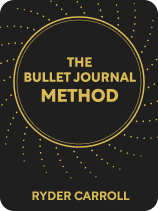

This article is an excerpt from the Shortform book guide to "The Bullet Journal Method" by Ryder Carroll. Shortform has the world's best summaries and analyses of books you should be reading.
Like this article? Sign up for a free trial here .
How can bullet journaling help you find meaning in life? What bullet journal exercises can you do that will get you excited about the future?
In his book The Bullet Journal Method, Ryder Carroll suggests two exercises for finding meaning and fulfillment in life: the visualization exercise and the obituary exercise. These exercises will help you move forward in a way that makes you feel more fulfilled.
Here’s how bullet journaling can help you in your search for meaning and purpose in life.
Searching for Meaning
Fulfillment is important to living a high-quality life, and according to Carroll, what makes us feel fulfilled is doing what we find meaningful. Because finding meaning in life isn’t objective and changes over time, it’s impossible to attain using logic or reason. Carroll says you can find meaning by following your curiosity—if you feel curious or excited about something, it’s a sign that you’ll be fulfilled if you decide to pursue it.
(Shortform note: Curiosity may be one way to find fulfillment, but there are other strategies you can try. For example, you could focus on helping others, reflect on which of your past experiences felt the most meaningful, practice gratitude for what you have, or nourish your relationships with others.)
Carroll claims that, unfortunately, we tend to search for fulfillment in the wrong places, preventing us from living our best lives. He says that culture has misled us to believe that we can achieve fulfillment through action. In particular, he argues there’s a widespread belief among millennials that they can achieve fulfillment through self-improvement. Because of this, they’re spending twice as much as boomers on things like gym memberships, online courses, and skincare, but they don’t feel any more fulfilled.
(Shortform note: Although Carroll doesn’t explore the specific ways in which culture has misled us with regards to finding fulfillment, one contributing factor could be the rise in messaging that focuses on “following your passion” and “finding your purpose.” These phrases have pressured people, especially millennials, into feeling like failures when they don’t discover those things quickly. As a result, they see fulfillment as a goal they need to dedicate all their time and energy to rather than something they’ll discover naturally through experience.)
Additionally, he argues that society has convinced us that fulfillment and happiness are one and the same, or that the ultimate goal in life is to be happy. Carroll says that companies take advantage of this mindset and market pleasure as a form of fulfillment. Because humans are built to prioritize pleasure, this leads us to spend time and energy searching for whatever makes us feel good.
Because true fulfillment comes from doing what we find meaningful, Carroll claims these strategies—chasing self-improvement and pleasure—don’t give us the results we’re looking for. Simply doing things because our culture pressures us to do them doesn’t lead to fulfillment. What’s more, happiness isn’t a state of being that can be achieved but an emotion that comes and goes. Carroll argues that by constantly pursuing happiness, we lose sight of the things that may actually bring fulfillment.

———End of Preview———
Like what you just read? Read the rest of the world's best book summary and analysis of Ryder Carroll's "The Bullet Journal Method" at Shortform .
Here's what you'll find in our full The Bullet Journal Method summary :
- A comprehensive guide to using the Bullet Journal Method
- How to maintain a journaling practice that can improve your overall quality of life
- How to extend the method beyond productivity to a practice in mindfulness






